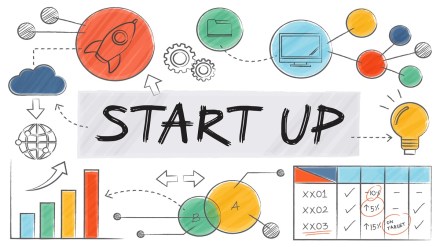Infosys co-founder Narayana Murthy’s recent concerns over the growing hype surrounding artificial intelligence (AI), wherein many systems being marketed as AI are merely traditional programming, resonate strongly with the venture capitalist community.
“I think somehow it has become a fashion in India to talk of AI for everything. I have seen several normal, ordinary programmes touted as AI,” Murthy remarked at a recent conference in Mumbai. Agreeing with Murthy, several VC firms told FE that they are increasingly encountering “AI washing” — a practice wherein startups inflate their AI credentials to attract funding. They said the problem is more prevalent than previously believed, with many startups falsely claiming to leverage AI in their products and services.
One such glaring example involved an early-stage SaaS startup pitching to VC firm Auxano Capital. The startup claimed to use AI-powered medical diagnosis, but upon further scrutiny, investors found that human experts were manually analysing the data, with no functional AI models in place.
Similarly, another startup claimed to use AI for automation, yet it was merely a basic rule-based system with no actual machine learning (ML) capabilities. Another AI-powered chatbot pitch turned out to be nothing more than manually programmed responses with no real natural language processing (NLP) or learning mechanism.
The extent of AI washing is alarming VCs, who said that, on average, three out of 10 startups exaggerate their AI claims. Some investors even suggest that in as many as 60-70% of cases, the reality of AI implementation is far from what was originally pitched.
“The rise in AI funding has encouraged many startups to re-brand traditional software as AI-powered, often without actual machine learning models or sophisticated AI implementations,” said Brijesh Damodaran Nair, managing partner at Auxano Capital.
Startups are increasingly incorporating AI jargon into their pitch decks and investment memos to create an illusion of advanced capabilities. The problem prevails across various sectors. Some workflow automation or data analytics tools claim to have AI features, but they only use simple IF-THEN rules or statistical methods rather than real machine learning. For example, a marketing software may claim to use AI for predictive analytics, but in reality, it’s simply applying a pre-set formula to detect trends, without real-time learning.
Many fintech startups claim to have AI-powered trading bots capable of predicting stock movements. However, these systems often rely on basic statistical models or rigid, pre-defined rules. A fintech app, for instance, might claim that its AI predicts stock price movements, but its actual mechanism may just involve simple rule-based decision-making, such as buying when the price falls by 10%.
Some startups claim to use AI for image recognition, deepfake detection, or video enhancement, but their technology is often driven by manual processes or traditional software. A video editing tool, for example, might claim to employ AI for automatic colour correction, but in reality, it could just be applying pre-set filters.
The issue has forced investors to ramp up their due diligence efforts. Many VCs now seek AI/ML domain experts, either in-house or through external consultants, to validate AI claims. IvyCap Ventures, for instance, relies on a network of mentors from institutions like IITs, as well as professionals who have worked with major tech companies such as Microsoft, Google, and Apple.
Sources said that some VC firms have increased their due diligence budgets by 20-50% in the past year due to AI-washing concerns. A few firms have even established dedicated AI committees to scrutinise AI-heavy startup pitches before making investment decisions. “We are looking at adopting rigorous due diligence processes to verify AI claims. Ironically, there are also AI tools that help us evaluate the code base and test the real AI capabilities,” said Vish Narain, managing partner at Pulsar Capital.
To verify AI claims, VCs now review a startup’s code and technology stack to check if they actually use AI frameworks. They also conduct product demos and test AI models against various datasets to confirm their performance. Evaluating the team behind a startup is another crucial step, as investors assess whether the AI developers have real ML expertise. Finally, they seek customer and market feedback to validate AI capabilities from real-world users and industry experts.
“Most founders are guilty of stretching the truth to sell. We are thus very careful when evaluating companies to distinguish between exaggerated marketing and actual capabilities,” said Ashwin Raguraman, co-founder and partner at Bharat Innovation Fund.
The problem of AI washing doesn’t stop at initial pitches. Some portfolio companies, after securing funding, also overstate their AI usage. When that happens, investors intervene and demand accurate representations. “Within our portfolio, we ensure that companies maintain transparency and do not misrepresent their AI capabilities,” Raguraman added.
To address this issue, VCs are advising startups to focus on their core value proposition rather than chasing AI trends. “In the long term, most companies will integrate AI in some form, but that doesn’t mean every startup should suddenly re-brand as an AI company. We invested in them based on their unique strengths, and they should stick to their core vision,” Narain said.
